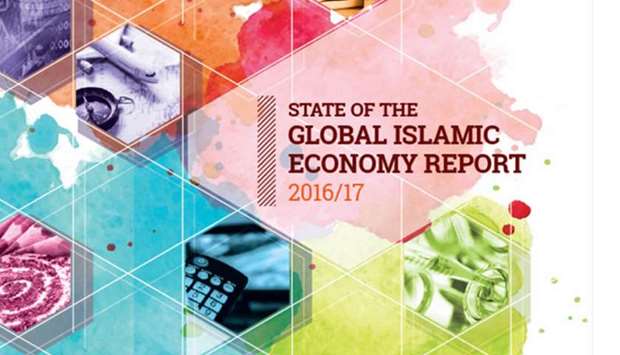Qatar also figured among the top ‘Muslim consumer travel expenditure market’ and was worth nearly $11.7bn in 2015, according to ‘State of Global Islamic Economy 2016/17’ report produced by Thomson Reuters.
The report noted that the “Islamic economy continues to evolve, driven by young Muslims asserting their values, and requiring companies to provide products and services that meet their faith-based needs.”
The Islamic economy was estimated to be worth $1.9tn in 2015, while the Islamic finance sector had around $2tn in assets.
Food and beverage tops the Muslim spend by category, at $1.17tn in 2015, followed by clothing and apparel at $243bn, media and recreation at $189bn, travel at $151bn, and spending on pharmaceuticals and cosmetics at $133bn.
The report has estimated the revenues from Halal-certified food and beverage products to be $415bn; revenues from “modest fashion” clothing purchased by Muslim women to be $44bn and revenues derived from “Muslim-friendly tourism services” to be $24bn, in 2015.
The report showed Halal travel continues to “broaden its reach with tremendous growth” in Halal beach resorts, the launch of several dedicated airlines and the launch of the Muslim answer to Airbnb, Bookhalalhomes, and TripAdvisor, Tripfez.
While Halal travel is a niche sector building momentum, the sector is expected to undergo rapid growth, with the Muslim spend on outbound travel expected to reach $243bn by 2021.
As the “modest fashion” sector gains traction, spend on clothing and apparel from Muslims is projected to reach $368bn by 2021.
The Halal pharmaceuticals and cosmetics sector continues to expand as awareness about ingredients rises, fostering new product developments, such as permeable nail polish, the development of Halal vaccines and new ranges of nutraceuticals.
With increasing certification activity in the sector, and as more mainstream players provide Halal products, the Muslim spend on pharmaceuticals and cosmetics products is expected to reach $213bn by 2021 in aggregate, the report said.
However, there are substantial opportunities in adjacent sectors including healthcare and education, estimated at $436bn and $402bn in 2015 respectively, to address the needs of Muslims with tailored offerings, with convergence opportunities in particular in Islamic economy education and medical tourism.
“For current and prospective Halal industry players, government agencies, and investment firms, the time is ripe to participate in the Islamic economy across all key pillars, and to generate substantial returns,” Thomson Reuters said.

Qatar is among the ‘top 10 nations’ in the world with the “best developed ecosystem” for Islamic finance, a report showed and noted that the country’s Islamic market was worth nearly $73bn in 2015.

